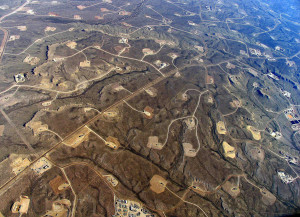
The low oil price continues to cause carnage with the oil industry and increasingly once-untouchable US shale companies. Indeed, the Saudi strategy to kneecap the American fracking industry looks not only like it is paying off, but will not be reversed anytime soon.
Last week, the influential Saudi oil minister Ali al-Naimi, told the IHS Ceraweek Conference (dubbed the oil and gas Davos) that there would be no deal to cut back on production and gave a warning to the US shale industry:
“The producers of these high-cost barrels must find a way to lower their costs, borrow cash or liquidate,” he said.
In a bid to starve of liquidation we had a string of announcements last week from frackers hanging on by their fingertips:
- Announcement one: The largest oil producer in the shale plays of North Dakota, Whiting Petroleum, said it would be suspending fracking operations in the state as of April Fool’s day. It has also cut its budget by a staggering eighty percent.
One commentator on the OilPrice website noted that “these are some of the biggest spending cuts in the industry so far … Whiting is slashing spending and appeasing investors as much as it can, but right now it’s all about avoiding bankruptcy for this company and its peers as the waiting game continues.”
- Announcement two: Continental Resources, once dubbed the “King of the Bakken”, also pronounced it was halting all fracking in the Bakken shale formation, since posting the company’s first loss since 2007. The company currently has no crews working in the Bakken.
- Announcement three: The “financially strapped” Chesapeake Energy Corp proclaimed it was halting new drilling in Ohio’s Utica Shale due to “financial constraints”.
The string of announcements last week is systematic of the pain currently being felt by the American fracking industry. But the collapse in the oil price is not the real issue threatening the long term viability of Big Oil.
In a strongly worded lead editorial today, The Financial Times warns the industry that “reinvention” is needed to survive.
Reflecting what its critics have been arguing for years, the paper says “The real danger is not the collapse in oil prices over the past couple of years — that is just a symptom of the upheavals in global energy markets that are putting the international oil companies’ business model at risk. If they are to last another hundred years, they will need a fundamental rethink of their operations and their strategy.”
And central to this is climate change and the fact that we cannot carry on burning oil. “The pledges made by governments at the Paris climate talks to curb carbon dioxide emissions will impede the growth of fossil fuels, including oil,” notes the FT.
The paper argues that Big Oil could “seize the opportunity in climate policy” and invest more in renewable energy.
Whilst this is something that the industry’s critics and environmentalists have been arguing for decades, it is a pivotal moment when it is being said in the main Editorial of one of the world’s leading business newspapers.
The paper goes on to ask a hugely pertinent question as to whether “the present generation of executives is facing up to” the challenge that climate change poses to the industry.
The answer appears not. One commentator for the subscription-only Politico reports on the IHS Ceraweek conference and notes: “Many oil and gas players dismissed the political threats they face from green activists, contending that global warming was simply an engineering and communications challenge.”
It seems the present generation of oil executives is just like the last. They see climate change as a technological tweak to their future, not a wholesale re-evaluation.
They fail the climate test.

As a citizen of the world, earth, I wish we could get more from the industry such as the examples in the article. And when I finished reading the piece I thought, and you are surprised by the lack of concern. Hell, I’m not. To improve the industry of providing the energy we all want and need, would reduce the lining of their pocket book! The bottom line is profit, no more no less. What happens to our earth in the future from the current practices of the industry will not affect them, they will be dead and buried by then. That’s just how I see it. I wonder if the whole world protested would that make our voice heard. Who knows?